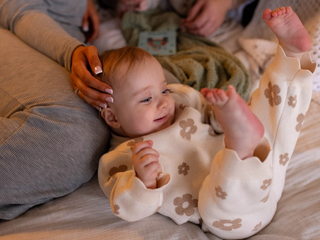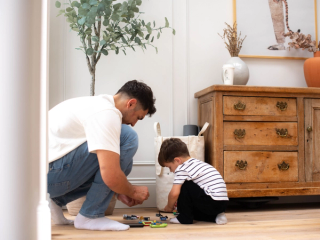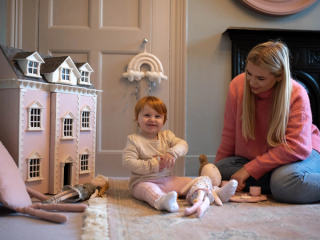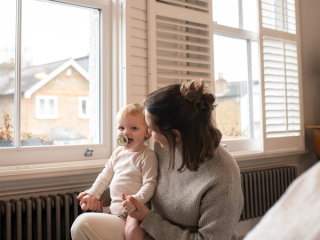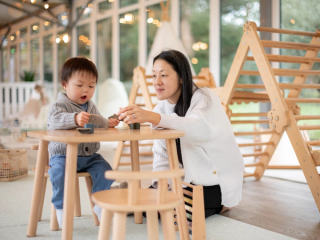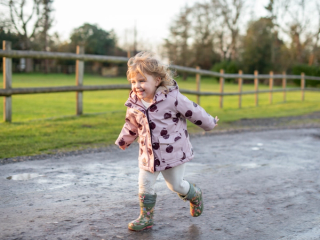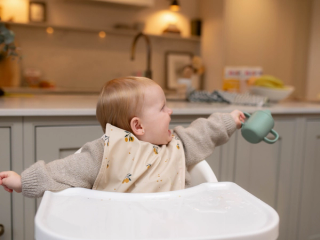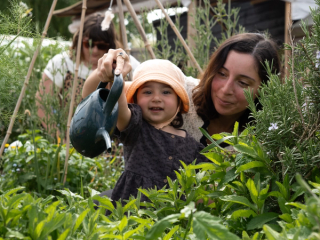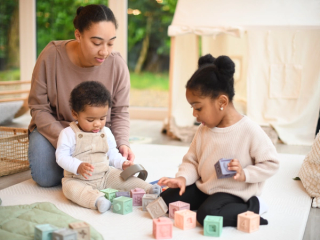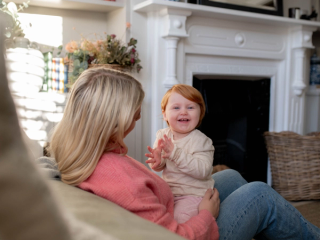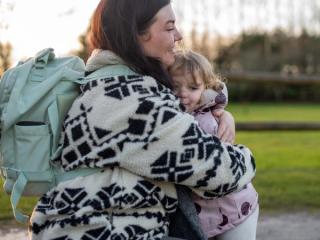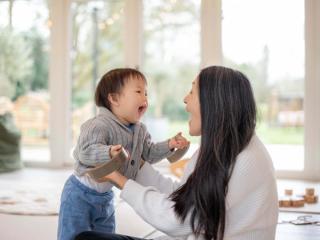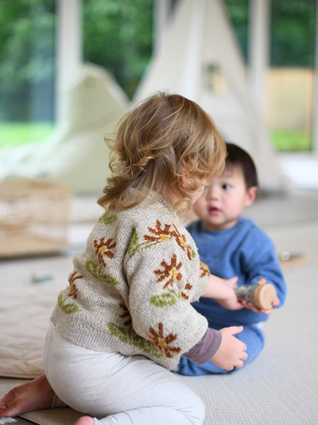
- Home
- Advice Hub
- Toddler
- Toddler Milestones
- Navigating Early Friendships
Navigating early friendships and managing conflicts between toddlers
Discover practical tips for teaching emotional regulation and social skills through play and everyday interactions.
Your toddler hasn’t yet learned how to control their emotions and one of the biggest changes at this age can be the start of mood swings or ‘temper tantrums’. Your toddler can go from fine one minute, to screaming in frustration the next, to smiling and playing again within seconds! This is developmentally appropriate and normal – it is simply your toddler making sense of the world around them, learning how to navigate big emotions they are feeling and understanding how to resolve conflicts and develop friendships and relationships. Toddlers and young children really struggle to hold onto their strong feelings without showing them which can make it tricky to navigate friendships and manage conflicts.
Building early friendships through connection
Tricky, but never impossible! It is part of growing up, maturing and developing. This is where our role as parent comes in, to enable them to develop the skills required to form early friendships and resolve conflicts. Connection with you is really important and you acting as ‘a secure base’ will enable your child to thrive and seek out friendships of their own in the real world. They need to feel and know that we love them unconditionally and that we will consistently be there to meet their needs. With these basic needs in place, they will begin to make friends, although typically at the age of 1 most children will play mainly on their own. They may watch others playing but not join in (this is known as onlooker play), or play alongside another child, but with no obvious interaction (this is known as parallel play). However, they will show a desire to play near other children and pay attention to each other some of the time.
Understanding and managing conflict
The conflicts we are likely to see with our toddlers who are 12-18 months are over things like both of them wanting the same toy or one of them playing with a toy, turning their back to give their attention elsewhere and another child having then taken the toy that they want back.
Our toddlers won’t necessarily have the words to know and explain what is going on. They probably won’t even understand what really happened because they’ve just acted on impulse from how something made them feel. The first thing we need to do is provide them with an understanding of how their body is feeling, we need to begin to introduce basic emotions to encourage very early identification of feelings. This can be done through labelling how your child is feeling as they feel it. For example, you as the adult need to stay calm and can use a script like this:
“I can see you’re feeling angry. I understand it’s upsetting that Ruth took the toy you wanted first. I’m going to give you a cuddle and then we can go and see if she’s finished now.”
Helping your toddler learn through play
Conflicts between toddlers can be more triggering for the parent or caregiver as, let’s be honest, we go into this default mode of ‘say sorry!’ ‘give it back’. We want to socially do what we think is the right thing in front of the other parent. However, involving your toddler in the resolution to the conflict is much more effective in helping them to truly understand how to navigate conflicts themselves in the future. At 12-18 months, this will be very basic, but as your toddler grows you can say things like “Ruth is sad because you took her toy. What could you do to make things better?” You could provide a limited choice too to support your toddler to make the right decision, problem solving for themselves, rather than simply being told what to do.
As you guys know, I am a huge advocate for play – play helps us in all situations! But it is particularly useful in allowing us to role play scenarios. Whatever your child’s favourite character or doll is, get them out and act out / role play / make up scenarios that could happen which model making friends and model navigating conflict. Play allows children to process and make sense of real life situations and you as their biggest role model are perfectly placed to do this!
Struggling to play with your toddler? There are ideas which cover personal, social and emotional development in the MMT play cards which you can access a discount as a BabyClub member here.
